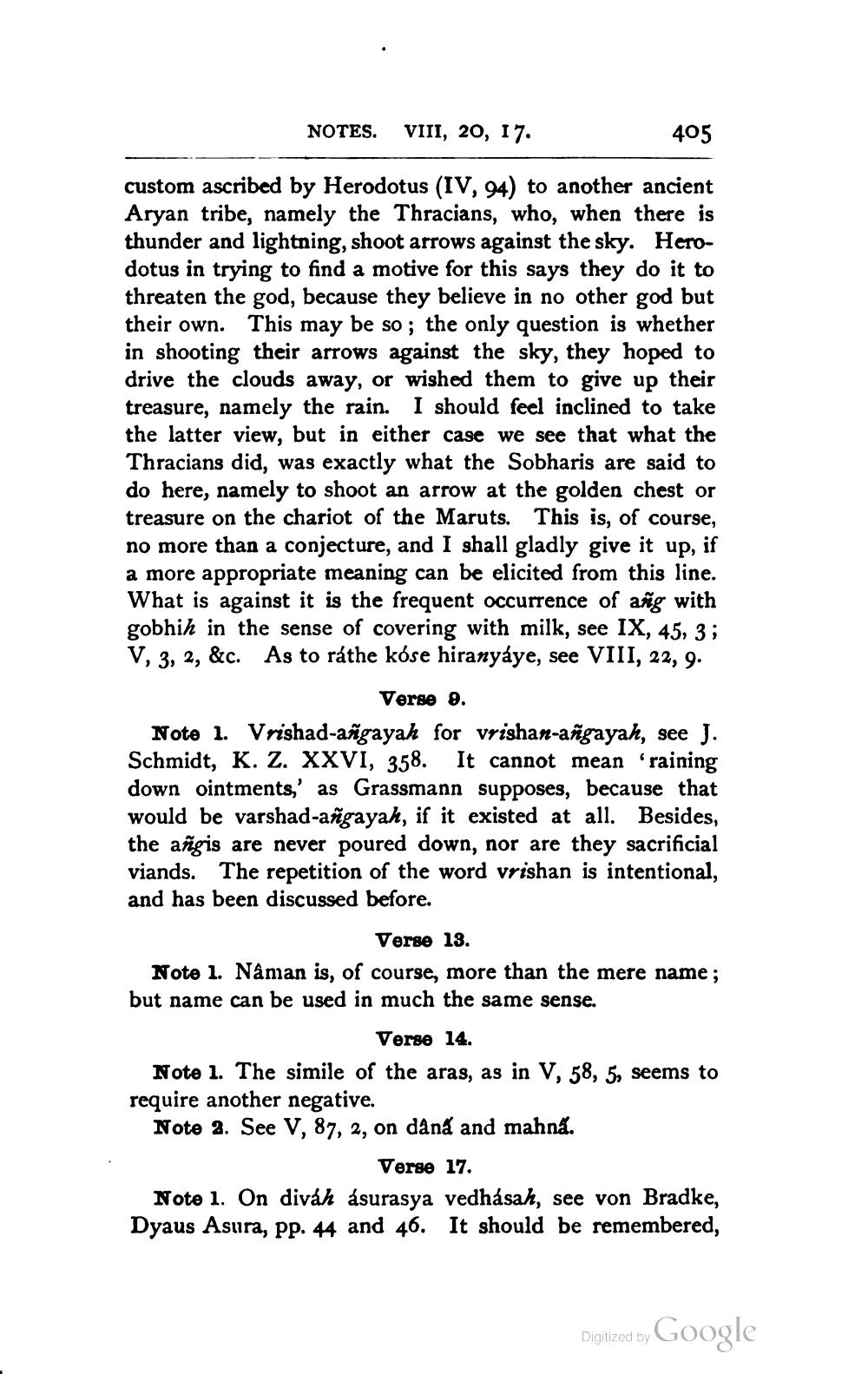________________
NOTES. VIII, 20, 17.
405
custom ascribed by Herodotus (IV, 94) to another ancient Aryan tribe, namely the Thracians, who, when there is thunder and lightning, shoot arrows against the sky. Herodotus in trying to find a motive for this says they do it to threaten the god, because they believe in no other god but their own. This may be so; the only question is whether in shooting their arrows against the sky, they hoped to drive the clouds away, or wished them to give up their treasure, namely the rain. I should feel inclined to take the latter view, but in either case we see that what the Thracians did, was exactly what the Sobharis are said to do here, namely to shoot an arrow at the golden chest or treasure on the chariot of the Maruts. This is, of course, no more than a conjecture, and I shall gladly give it up, if a more appropriate meaning can be elicited from this line. What is against it is the frequent occurrence of añg with gobhih in the sense of covering with milk, see IX, 45, 3; V, 3, 2, &c. As to ráthe kóse hiranyaye, see VIII, 22, 9.
Verse 9. Note 1. Vrishad-añgayah for vrishan-añgayah, see J. Schmidt, K. Z. XXVI, 358. It cannot mean "raining down ointments,' as Grassmann supposes, because that would be varshad-añgayah, if it existed at all. Besides, the añgis are never poured down, nor are they sacrificial viands. The repetition of the word vrishan is intentional, and has been discussed before.
Verse 13. Note 1. Naman is, of course, more than the mere name; but name can be used in much the same sense.
Verse 14. Note 1. The simile of the aras, as in V, 58, 5, seems to require another negative. Note 2. See V, 87, 2, on dana and mahnä.
Verse 17. Note 1. On diváh asurasya vedhásah, see von Bradke, Dyaus Asura, pp. 44 and 46. It should be remembered,
Digitized by
Digized by Google




